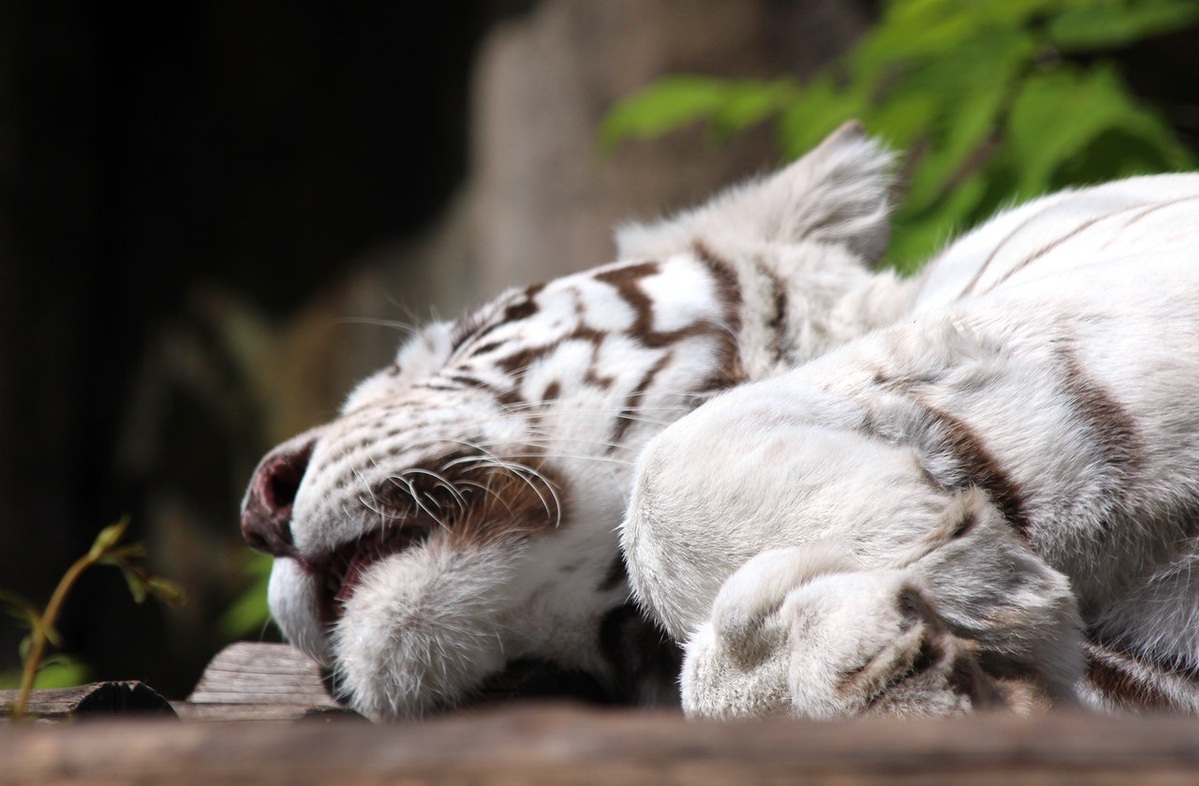Authentic Chinese-Chinese ChengYu: Idioms about tigers muTu Note - Learn Chinese with Chinese Girl
A decade ago, a consortium of world leaders and activists founded International Tiger Day with the alarming news that 97 percent of the world’s wild tigers had disappeared in the last century. Observed on July 29 each year, this celebration of big cats raises awareness to the poaching, habitat loss, and climate change factors that led to their decline.

China is no exception to these efforts, as one of its own indigenous tiger species, the South China Tiger, is thought to have been extinct in the wild since the 1970s (the country is also home to the endangered Bengal and Siberian tigers).
Equal parts reverence and fear, ancient Chinese attitudes toward tigers have been encapsulated in many classic idioms with amusing origin stories and useful applications:
卧虎藏龙 Crouching tiger, hidden dragon
This saying, which refers to talent that is hidden, is best known to Hollywood audiences for giving name to Ang Lee’s 2000 film. The movie’s epic wuxia(武侠,marital arts) world is full of characters who are not what they seem, revealing impressive cunning and fighting abilities as the plot unfolds.
The full saying is a line by poet Yu Xin (庾信) from the sixth century, “The dark stone looks as though a tiger is crouched behind it/ The tree root seems as though it conceals a dragon (暗石疑藏虎,盘根似卧龙).” But rather than undiscovered genius, the original quote simply describes a scenic—albeit treacherous—spot at which the poet meets a friend.
zhè gè zhèn zi wò hǔ cáng lóng,bù kě xiǎo qù
这个镇子卧虎藏龙,不可小觑。
This town boasts many talents and so is not to be taken lightly.
龙腾虎跃 Leaping dragon, jumping tiger
Dragons and tigers, both powerful and majestic animals, make a ferocious pair in many Chinese chengyu. This one describes an action that is forceful and full of vitality.
虎头蛇尾 Head of a tiger and tail of a snake
While dragons are a good match for tigers in terms of strength, snakes are a less apt pairing. This idiom describes an action or initiative that starts with a bang, but goes out with a whimper.
Zuò rèn hé shì dōu yào rèn zhēn, jué bù néng hǔ tóu shé wěi
做任何事都要认真,决不能虎头蛇尾。
Performing a task requires a serious attitude; you can’t abandon it halfway through.
照猫画虎 Draw a tiger modeled on a cat
This picturesque chengyu allegedly comes from the story of a painter who left behind an unfinished portrait of a tiger when he died. On his deathbed, he made his disciple promise to finish the painting. The disciple faithfully went up the mountain every day, but didn’t find any tigers to draw, so he decided to use a cat as his model instead. The resulting portrait was almost, but not quite, like a tiger, so the disciple became the laughingstock of the town. Today, the chengyu refers to shallow imitation without real understanding.
Xiě zuò wén yào yǒu zì jǐ de xiǎng fǎ, bù néng zhào māo huà hǔ chāo bié rén de
写作文要有自己的想法,不能照猫画虎抄别人的。
You must present your own thoughts in your essay, not simply copy others.
为虎作伥 Playing chang to the tiger; assisting evil
In Chinese folklore, a 伥 (chāng) is the ghost of a person who has been devoured by a tiger. Once eaten, these spirits will forget their humanity and lure more victims to the tiger, as described in the story of “Ma Zheng.” The idiom thus describes someone who assists an evildoer, often their own enemy:
tǔ háo liè shēn de gǒu tuǐ zi wéi hǔ zuò chāng,qī yā bǎi xìng
土豪劣绅的狗腿子为虎作伥,欺压百姓。
The local bully’s henchmen were his agents in oppressing the people.
三人成虎 Three people to make a tiger
This idiom, meaning “A rumor repeated by many people becomes a fact,” comes from either the Strategies of the Warring States(《战国策》) or the legalist text Han Feizi (《韩非子》), which both record the same story: Pang Cong, a chancellor of the state of Wei, was assigned to escort the Prince of Wei to become a hostage of the state of Zhao. Before his departure, Pang asked the King of Wei, “If a person said they saw a tiger in the market, would your Majesty believe it?”
The king said no, so Pang asked, “What if a second person said they saw the tiger?”
The king replied, “I would still find it suspect.”
Pang asked, “What if a third person said so?”
The king exclaimed, “Then it’s definitely true!”
Pang then told the king, “It’s extremely unlikely that a tiger would appear in the market, but once three people say it’s true, people start to believe it. Yet the distance from the Zhao capital to the Wei capital is far greater than that from the market to your palace, and there may be more than three people who will try to slander me. I beg your Majesty to treat what you hear prudently.” The king assured Pang he had nothing to worry about, but after his departure, people began to spread rumors about Pang to the king. At first, the king was skeptical, but after multiple people brought the same tale, the king started to believe it, and banished Pang from the court.
https://ift.tt/33H9bxG

from WordPress https://ift.tt/3iw2vHc
Comments
Post a Comment